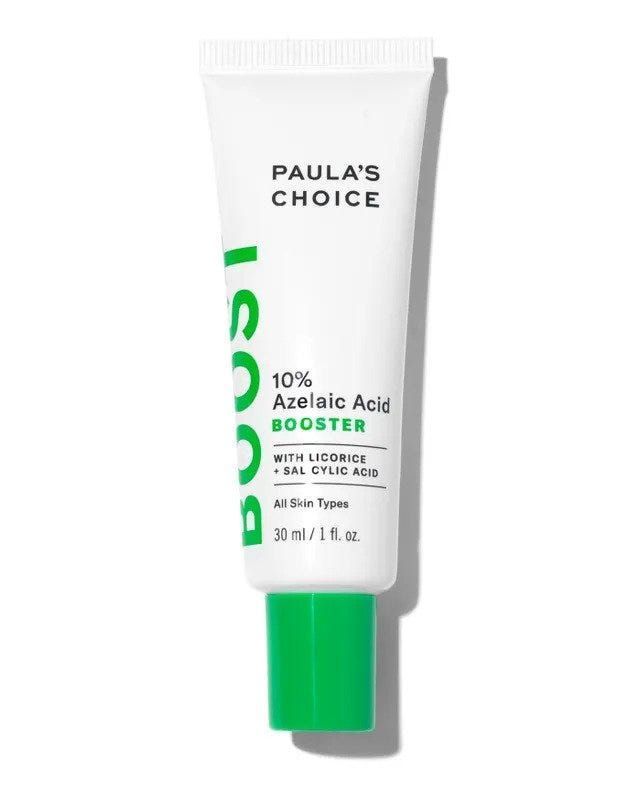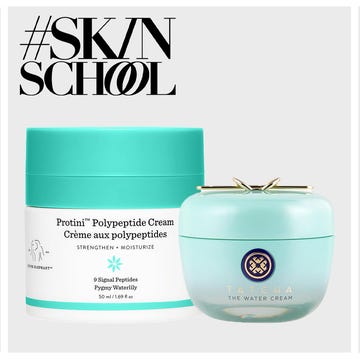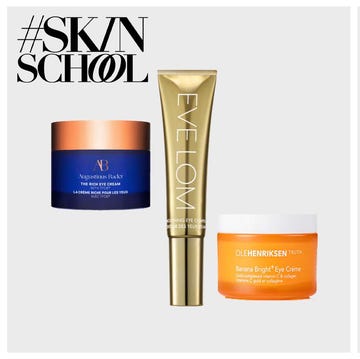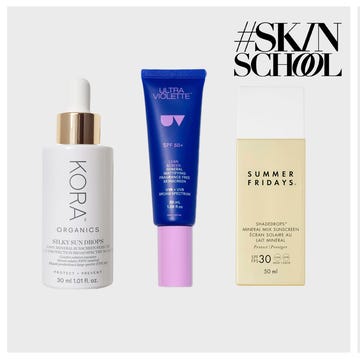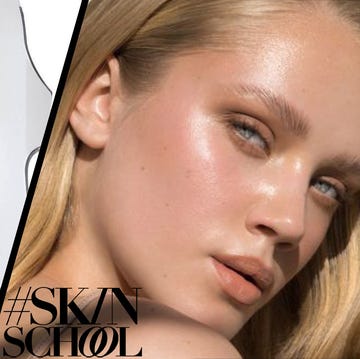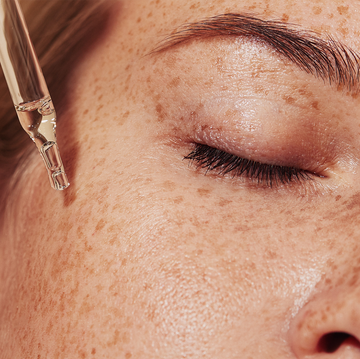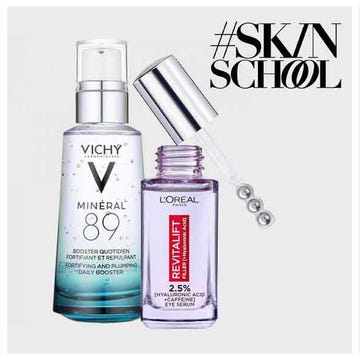We earn a commission for products purchased through some links in this article.
#SkinSchool: Everything you need to know about azelaic acid
Skincare's sleeper hit is finally stealing the spotlight – here's why

Azelaic acid probably doesn’t sound as familiar to you as today’s big skincare players. It’s not half as hyped as retinol, or as ubiquitous as hyaluronic acid – but this fortifying ingredient may just be the ‘active’ your skin is really crying out for.
If you’re attempting to keep your skin calm in the face of rosacea, or want to bring down a bout of inflammatory acne, this soothing brightener is your best bet for finding balance. Here, we explain everything you need to know about azelaic acid, from how to use it correctly to the products that work best.
What is azelaic acid?
According to Dr. Sam Bunting, cosmetic dermatologist and founder of Dr. Sam’s, azelaic acid is a “naturally occurring byproduct of a yeast that lives on all our skins. Specifically, it’s a dicarboxylic acid and it can also be found in grains, like barley.”
The benefits of azelaic acid in skincare?
While the most well-known acids work to either exfoliate (glycolic, salicylic) or hydrate (hyaluronic), azelaic acid is renowned for its calming benefits. “It reduces inflammation in the skin by its effect on the activity of Toll-like receptors, which sense our environment for danger, helping activate our skin’s defences,” explains Dr. Bunting. “In redness-prone skin these sensors are turned up too high and azelaic acid helps bring them back under control.”
That’s not all: azelaic acid is also a helpful antibacterial ingredient, which “reduces the tendency for our skin cells to clog up our pores,” adds. Dr Bunting. These two properties combine to make azelaic a powerful option for acne-prone skin.
Furthermore, azelaic acid is known as a ‘tyrosinase inhibitor’, which essentially means it can reduce the skin’s propensity for developing hyperpigmentation: a welcome benefit for those dealing with acne scars and melasma.
Who should try azelaic acid?
Dr. Bunting recommends azelaic acid products to almost everyone: “from redness and blocked pores to breakouts and uneven skin-tone, it’s incredibly versatile,” she says. “It also partners well with other actives – a real team player!"
"I’ve been talking about azelaic acid for a long time: I remember making my first YouTube video on it six years ago so I’m delighted it’s finally getting its well-deserved moment in the spotlight," Dr. Bunting adds. Indeed, azelaic acid is the central ingredient in her eponymous over-the-counter skincare brand, Dr. Sam's, which is one of the first to wholly embrace this ingredient’s remarkable benefits.
So why exactly is this brilliant ingredient so widely overlooked in favour of salicylic acid and retinol? According to Dr. Bunting, the fact that it’s tricky to formulate generally puts manufacturers off. “It sits in suspension, and can easily feel gritty on application, so a lot of brands won’t undertake the endeavour.”
Now, however, a handful of forward-thinking brands are embracing the challenge and delivering azelaic acid skincare that truly benefits those with a predisposition for redness and breakouts. When choosing a formula to try, Dr. Bunting recommends to “know the percentage of azelaic acid in the product and build up to your limit gradually - products range from 5 per cent and go up to 20 per cent (on prescription).”
“Look for 5 per cent if your skin is sensitive and you’re just getting started. Build up to 15-20 per cent as skin acquires tolerance,” (and seems to enjoy the ingredient’s benefits).
Who should skip azelaic acid?
Truthfully, not many of us. "Occasionally someone with sensitive skin will find azelaic acid hard to tolerate it but it’s extremely rare – we use it in rosacea after all,” says Dr. Bunting. “It’s also one of the few ingredients that’s safe in pregnancy and breastfeeding.”
The best azelaic acid products to try now
Products such as Skinoren and Finacea are widely prescribed for the treatment of concerns such as rosacea and acne, and today they're easier to get your hands on, thanks to the rise of online dermatology services such as the Bazaar-recommended Get Harley.
Now, there are several great azelaic acid products available without a prescription, from all-over daily serums to on-the-spot treatments. Here, see the ones the Bazaar team recommend.








